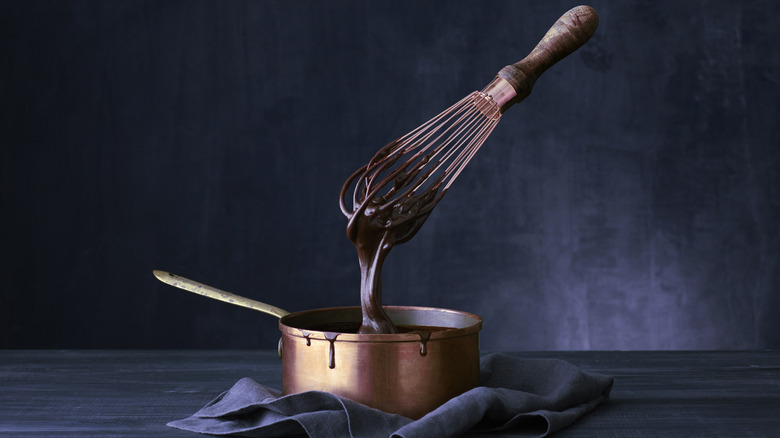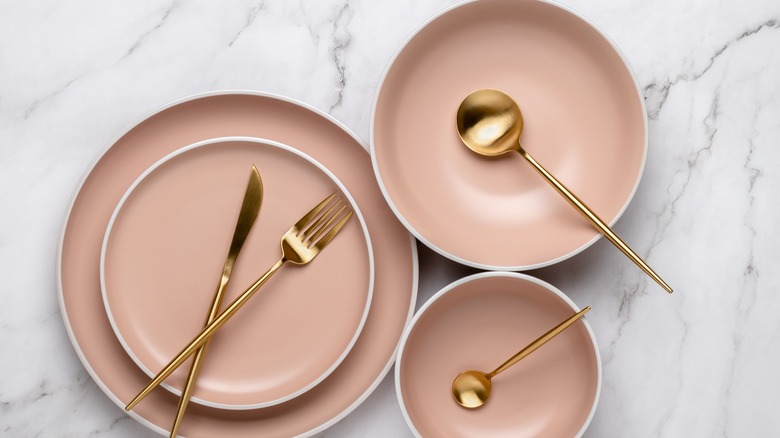The Strange Way Your Utensils Could Be Altering How Your Food Tastes
If your favorite meals aren't tasting quite the way they should, it's possible neither you nor your ingredients are to blame. The real culprits could be your utensils. Depending on which tools you use during the cooking process — and which cutlery you dine with afterward — flavor can be majorly impacted. Although there are various reasons as to why this may be the case, the simple answer lies with what these culinary tools are made of.
Material is the singular most important element to consider when purchasing cookware and silverware. While durability, price point, and aesthetics are other important considerations, the material should be foremost because it can negatively react to the ingredients during preparation. For instance, unlike sturdy, neutral metals such as stainless steel, utensils made with copper or zinc can significantly change how it tastes. The question is, why?
Since copper and zinc are fairly reactive metals, their metallic flavor will likely interact (and somewhat infuse) into foods while cooking. Additionally, because metals produce taste-altering ions when they react with saliva, cutlery made (or cladded) with these sensitive materials can also impart intense bitterness when dining. But that's not all. Alongside a heightened bitterness, copper and zinc can also amplify the perceived saltiness of a dish. Essentially, serving or dining with either of these metals will always lead to bolder, albeit more peculiar, flavors.
From a psychological perspective...
Beyond physical attributes like chemical-reaction-inducing materials, part of how cutlery affects our tasting experience is psychological. Various elements, such as shape, size, weight, and color, can influence our sense of taste. This is because eating is multisensorial — what we see, smell, and feel can all impact how we taste something, even before placing it in our mouths., Based on the mental associations we make as a result of social conventions and lived experiences, we can already form an idea of how a dish may taste as we examine it at the end of our forks.
Illustrating how different utensils can play a part in perception, studies at Oxford University have shown that food served on cutlery made with silver was deemed higher quality because of the precious metal's connotation with wealth. Moreover, the same was true for heavier cutlery, which has been historically linked to abundance. With utensils laying the groundwork for how food might be perceived, whatever's eaten with the cutlery will likely be regarded in a similar way. Though our sense of taste and perception of flavor is an amalgamation of many mental and physical factors, one thing is for sure: a utensil's material will perpetually play an important gustatory role, so choose tools and silverware wisely.

